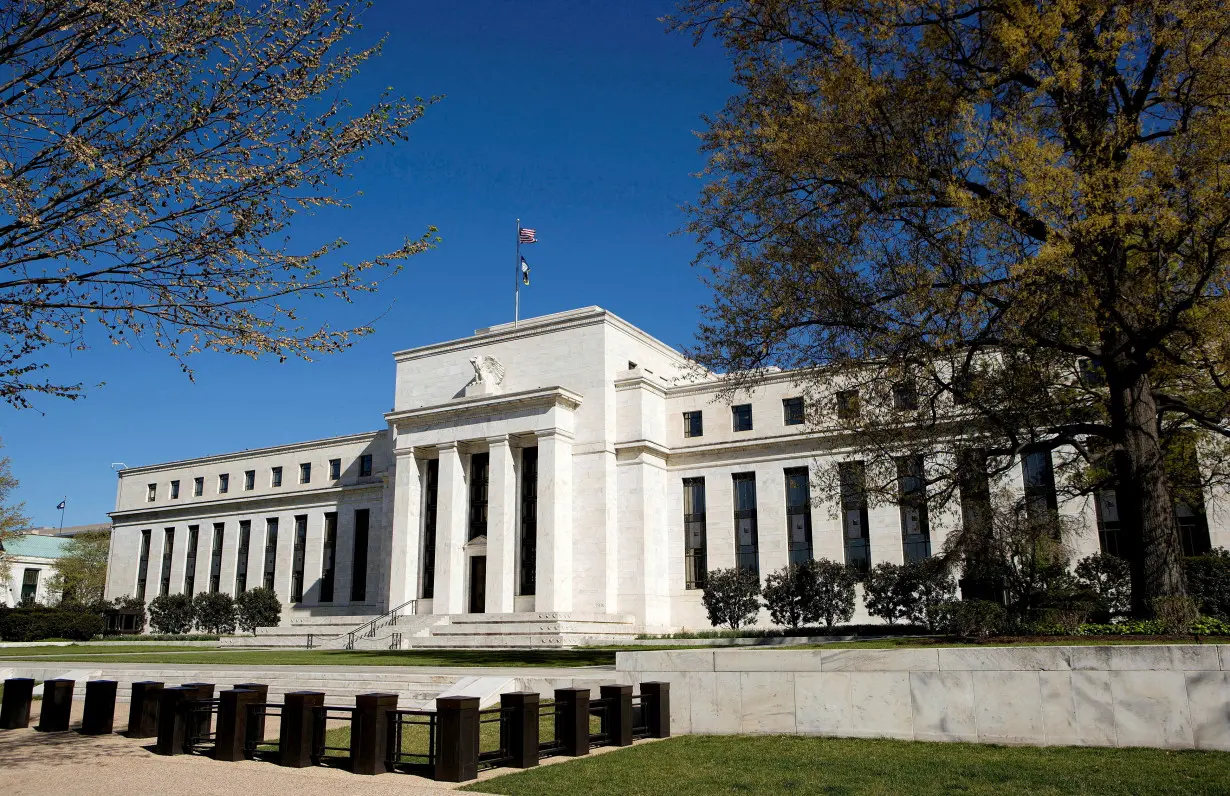(Reuters) -U.S. households continued to feel pinched by inflation in late 2023 even as price pressures ebbed, the Federal Reserve reported on Tuesday, with most Americans saying their financial situation had changed little in the last year, while parents reported times had gotten harder.
About 72% of adults were doing at least okay financially as of October 2023, the Fed's annual survey on household economics and decision-making showed.
That was down from 78% in 2021 and the lowest rate since 2016, though little changed from 73% in 2022. The share of parents doing at least okay financially dropped 5 percentage points to 64%, the lowest level since 2015 when data collection began.
Inflation remained the top financial concern, the report said. Sixty-five percent of adults said high prices had made their situations worse, even though consumer inflation fell sharply from around 9% in June 2022 to below 4% by the time the survey was taken. And while 34% said their family's monthly income had risen in the past year, 38% said their spending had also increased.
Some 63% percent of adults said they could cover a hypothetical $400 emergency expense using cash or its equivalent, the same as in 2022 but down from a record high of 68% in 2021.
Covering rental housing costs was a greater challenge last year than in the year before, with 19% of renters saying they had been behind in the rent at some point in the prior year, up from 17% in 2022. Rental costs, which have proven to be among the reasons inflation has not eased as much as Fed policymakers had hoped, were up far more than inflation overall, with the median monthly rent rising 10% to $1,100, the survey said.
The survey included responses from 11,000 people and was conducted in October of 2023.
It was the latest in an array of pulse-takings of U.S. consumers to show a generalized gloom hanging over Americans' view of the economy and their own financial well-being even as growth has exceeded expectations and the job market remains strong.
Monthly surveys from other organizations like the Conference Board and the University of Michigan have shown a persistent pessimism that began about three years ago alongside the arrival of the highest inflation since the 1980s.
'HIGHEST PRIORITY'
The dourness registers with Fed officials who continue to see the effort to bring inflation back to the central bank's 2% target as their top priority.
The "burden" of rapid inflation "was felt early because goods prices and prices in the market went up faster than wages and income then, and so people definitely felt they were falling behind," Atlanta Fed President Raphael Bostic said at a conference in Florida this week.
Wage gains have generally exceeded price increases over the last year, especially for the lowest earners. Still, consumers retain memories of the pain inflicted by price pressures, and surveys, including from the Fed, show how deeply that has become ingrained.
"People don't do that math continuously to know that they're catching up," Bostic said.
"I think there's just some lived experiences (that are) going to have to happen where people will at some point do a recalibration, but I don't know exactly when that's going to be. And so, for me, it's just we got to get inflation back to our target," he said. "And that's got to be the highest priority."
(Reporting by Dan Burns; Additional reporting by Ann Saphir, Howard Schneider and Lindsay Dunsmuir; Editing by Paul Simao)

 Santa Cruz County ballot errors impact more than 1,100 voters
Santa Cruz County ballot errors impact more than 1,100 voters
 Strike at Boeing was part of a new era of labor activism long in decline at US work places
Strike at Boeing was part of a new era of labor activism long in decline at US work places
 Google defeats lawsuit over gift card fraud
Google defeats lawsuit over gift card fraud
 Delay in Chile mining permits a serious problem, says local head of Freeport
Delay in Chile mining permits a serious problem, says local head of Freeport
 Equatorial Guinea orders crackdown on sex in government offices after videos leaked
Equatorial Guinea orders crackdown on sex in government offices after videos leaked
 US needs to crack down on Chinese chipmaker SMIC, Republican lawmaker says
US needs to crack down on Chinese chipmaker SMIC, Republican lawmaker says
 Malaysia central bank set to manage market volatility, monitoring US election
Malaysia central bank set to manage market volatility, monitoring US election
 Book Review: 'The Name of This Band is R.E.M.' is a vivid journey through the rock band's history
Book Review: 'The Name of This Band is R.E.M.' is a vivid journey through the rock band's history
 Rare letter signed by Founding Fathers expected to fetch $1 million at auction
Rare letter signed by Founding Fathers expected to fetch $1 million at auction
 Jerry Jones says Dak Prescott likely out at least 4 games with IR move because of hamstring injury
Jerry Jones says Dak Prescott likely out at least 4 games with IR move because of hamstring injury

